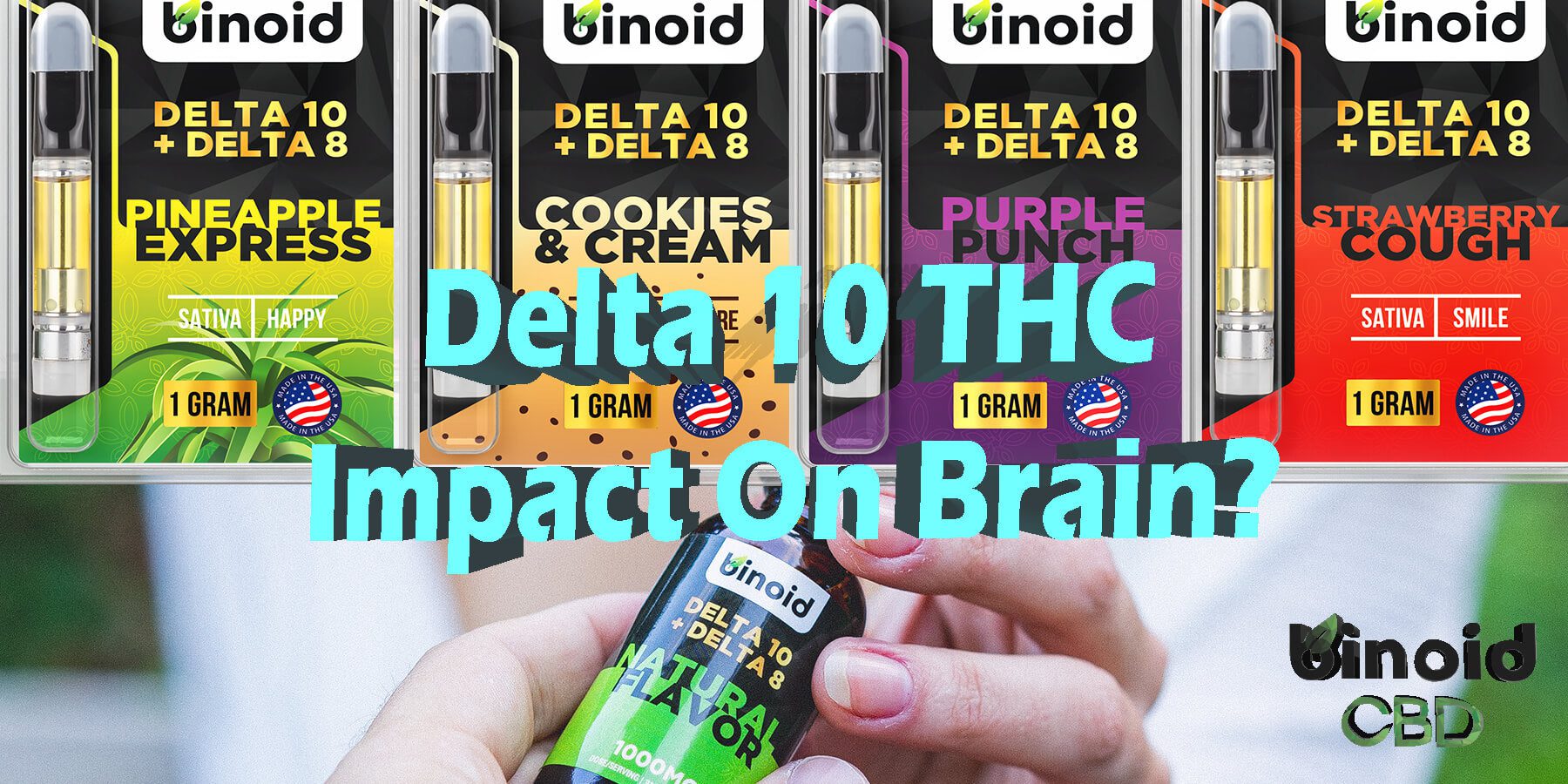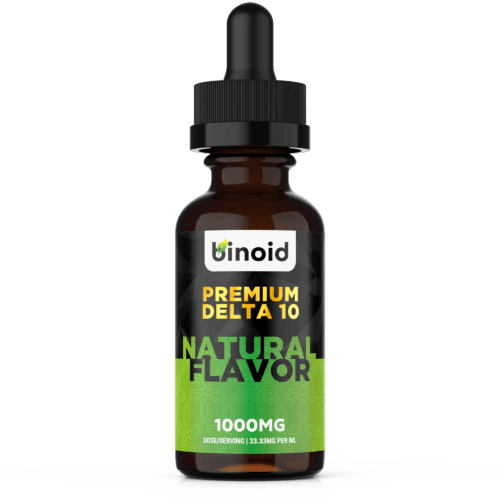It didn’t take long for delta 10 THC to become one of the most in-demand derivatives of the hemp plant, only second to CBD. This mildly psychoactive cannabinoid delivers a rich and rare variety of effects that the large majority of hemp enthusiasts just can’t get enough of.
As a cannabinoid, delta 10 has the unique ability to interact with cannabinoid receptors in the body that control the regulation of specific processes that allow us to function on a daily basis. And, it seems to have a unique affinity for cannabinoid receptors in the brain that control all kinds of aspects of brain function. That means that Delta 10 THC products could have effects on brain functions.
To buy Delta 10 THC Products Click Here
Delta 10 THC: A Basic Look at this Unique Compound
Delta 10 THC is a naturally occurring compound found in the hemp plant, belonging to a class of compounds known as cannabinoids which are specific to the cannabis genus to which hemp belongs. It’s a minor cannabinoid that makes up only about 0.1% of the plant’s entire chemical composition – compare that to the 15%-20% or so cannabidiol (CBD) found in hemp, and you can understand what we mean by “minor.”
Delta10 is, in fact, the natural result of delta 9 THC that has undergone an oxidization process within the plant material due to age. As the hemp plant ages, a portion of its delta 9 converts into delta 10, which allows the compound to take on new properties. Most notably, delta 10 is about 70% as psychoactive as delta 9, offering a milder yet still substantial high to users. The way in which the cannabinoid interacts with the body as a whole also changes, based on its relationship to the endocannabinoid system.
Delta 10 THC and the Endocannabinoid System
The effects that delta 10 THC has on the brain come from the cannabinoid’s relationship with the endocannabinoid system (ECS). Delta 10 is one of over 100 cannabinoids present in the hemp plant, and what all cannabinoids have in common with one another is that they’re used by the endocannabinoid system in an effort to keep the body in homeostasis.
Cannabinoids like delta 10, CBD and others attach themselves to cannabinoid receptors found throughout the body, and this process triggers the regulation of the function of adjacent bodily processes, whether they relate to inflammation, mood, pain, etc.
One thing that makes delta 10 stand out is that it has a strong affinity for CB1 receptors compared to other cannabinoids. CB1 receptors are a class of cannabinoid receptors located in the body’s nervous system, which, among other things, control brain processes. This means that delta 10 may offer uniquely powerful effects on many aspects of brain function.
In fact, studies have shown that delta 10 THC is powerfully capable of attaching to specific binding sites in brain membrane to provide strong effects that pertain to all kinds of aspects related to brain function. It’s important to note that we’re still learning a lot about delta 10. Although it was discovered several decades ago, its impressive popularity is quite recent, and due to the fact that it’s only been legal for a couple of years, medical researchers are only now getting their hands on it to analyze its brain-related properties.
What are Psychoactive Properties of Delta 10 THC?
Most people who seek out delta 10 products from Binoid are interested in exploring the compound’s psychoactive properties, and we can hardly blame them. Delta 10’s psychoactive properties are extremely exciting not only because they are federally legal, but because they’re uniquely enjoyable.
The milder nature of delta 10 compared to delta 9 is something that many people seek out specifically, as the high of delta 8 doesn’t seem to be as mentally impairing as that of delta 9. Further, many people report that delta 10’s high is particularly soothing and mellowing, which makes it an easy reach after a long and stressful day.
Delta 10’s psychoactive properties come from its interaction with CB1 receptors in the brain that control the intoxicating response. Among other things, activation of these specific receptors influences the transmission of dopamine, which is why so many people find that the effects of the cannabinoid are both uplifting and relaxing. Some people report euphoria, which would indicate a strong dopamine response, which is a common characteristic of THC compounds in general, with delta 9 being the most known for this effect.
Delta 10 THC and Mood
Beyond its psychoactive effects, delta 10 THC seems to offer potentially significant effects on general mood. Research has shown the cannabinoid to possess anxiolytic properties, meaning that it may offer a feeling of inner bliss to those who are anxious or stressed. This largely comes from the cannabinoid’s influence on cortisol, the neurotransmitter responsible for our stress response which is a key function of our survival. By balancing cortisol release, our nervous system may become less reactive to stressful stimuli.
Delta 10 THC and Neurological Balance
Studies have also found that delta 10 plays a role in neurological balance by acting as a neuroprotectant. Neuroprotectants are critical in that they maintain the integrity of neurons in the brain along with neural pathways that keep cognitive function strong as we age. Another application of neuroprotectants is in the management of neurological disorders, including epilepsy. In fact, a number of hemp-derived cannabinoids are being researched for their potential impact on seizures in individuals who suffer from the condition.
It’s this same property of delta 10 that allows some users to report feeling more motivated and focused on specific tasks, due to a boost in cognitive performance. However, it’s just as important to note that some studies indicate that long-term, chronic use of delta 9 THC can lead to mild forms of cognitive impairment down the line. There are no studies showing the same effect in delta 10 users at the present moment.
Delta 10 THC and Pain
The body’s pain response is a complex process that is carried out by the nervous system. Pain receptors attached to nerves of the body are triggered by painful stimuli, which sends a signal to the brain that causes pain to be perceived. But, analgesics interrupt this communication to minimize the body’s response to painful stimuli so that the brain is less reactive. Studies show that delta 10 THC may act as an analgesic to increase pain tolerance.
Delta 10 THC: A Cannabinoid Uniquely Capable of Interacting with the Mind
Overall, delta 10 THC is a cannabinoid that works intimately with brain processes, offering a wide array of effects ranging from mild intoxication to regulation of neurological function. But, more practically speaking, your delta 10 experience is only going to be as good as the quality of the product that you’re using.
Products made using cheap extraction methods and other shortcuts are simply not going to give you these effects to their fullest potential. If you’re interested in exploring delta8’s effects on the mind, we recommend Binoid products, since they are always lab-tested, fresh, and as pure as can be. Check out Binoid’s collection of delta 10 tinctures, vapes, edibles, capsules, and dabs today and experience these fascinating properties for yourself!





